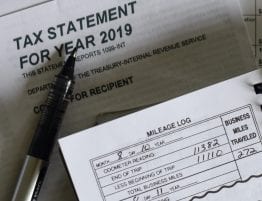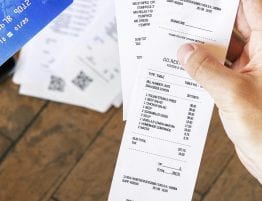
Unlike in an employer-employee relationship where the employer withholds taxes from the employee’s paycheck and forwards it to the IRS, independent contractors are required to determine taxes on their own and pay them. Many times, independent contractors are not aware that they are in tax debt until they receive an IRS notice/letter regarding it. Since tax obligations are not so simple for independent contractors, we have shared key points that independent contractors may know in order to stay compliant.
Who are Independent Contractors?
Independent contractors are self-employed individuals that provide services to businesses. The tax laws that apply to self-employed taxpayers apply to independent contractors as well. However, not all self-employed individuals are independent contractors.
The IRS defines independent contractors as those “who are in an independent trade, business, or profession in which they offer their services to the general public” such as doctors, dentists, veterinarians, lawyers, accountants, contractors, subcontractors, public stenographers, auctioneers?and so on. Even then, not all doctors or lawyers are independent contractors.
That brings us to the basic definition of an independent contractor. As a general rule, an independent contractor has control over what will be done and how it will be done whereas the payee has the right to control or direct only the result of the work. If your work or profession fits this definition, then you are an independent contractor. The IRS considers all independent contractors as self-employed individuals for tax purposes. Therefore, independent contractors, like self-employed individuals, are required to pay self-employment tax.
Unreported Income
Many independent contractors work for more than one business. Some use third-party businesses to match them with other businesses. This can make it difficult for them to keep track of income from a variety of sources. Unreported income on Form 1099 is one of the most common causes of tax debt and IRS audit. Even if income from one source goes unreported, it may result in an audit. Even if the IRS does not conduct an audit, it causes tax debt due to non-payment of taxes.
When the IRS or the taxpayer discovers the unreported income, the taxes owed on the unreported income need to be paid. The total back taxes amount increases with time due to the accumulation of interest and penalties so that even if the original tax owed was a small amount, it can grow into a substantial sum after months of non-payment.
Deducting Incorrect Business Expenses
The self-employed can deduct “ordinary and necessary” business expenses on their return, but they need to have receipts or written record of the expenses they deduct. It is a good practice to separate personal expenses from business expenses, and claim only those business expenses that you qualify for. Taking false deductions can lead to tax debt and the risk of an audit too.
Since the IRS deems it the self-employed individual’s responsibility to correctly calculate and pay taxes, the tax agency cannot be held responsible for tax debt if they discover the “error” after months or years.
Errors in Calculation
Though the IRS corrects minor mistakes such as math errors on a return, independent contractors must refrain from trusting the IRS to correct errors on their return. Errors that lead to the owing of taxes are the most damaging, as they can result in tax debt. The IRS sends notices/letters to taxpayers who owe back taxes, asking them to pay the amount owed. Usually, the notice/letter is mailed to the residential address or the office address. If the taxpayer is not present at the address, s/he may not know about the tax debt and take appropriate action. Delay in payment increases the tax debt, and can cause the IRS to use aggressive collection actions such as the seizing of property and/or assets (tax lien) or selling of the seized property and/or assets (tax levy).
Conclusion
Before filing a tax return, independent contractors may review the return for errors and make sure that they have written record of the credits and deductions that they have claimed on the return. Using the services of a return preparer or a tax software can be helpful in avoiding mistakes and correctly determining the taxes to be paid. With a little carefulness, taxpayers can steer clear of tax issues and fulfill their tax obligations without a glitch.








